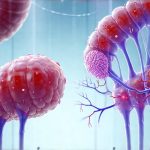The human body is an intricate network where various systems constantly communicate and influence one another. For decades, scientists have recognized the profound connection between our digestive system and our brain – a bidirectional communication pathway now known as the gut-brain axis. This isn’t simply about “gut feelings”; it’s a complex interplay involving neural, hormonal, immunological, and metabolic signaling that impacts everything from mood and cognition to immune function and overall health. Understanding this axis is crucial for appreciating the holistic nature of wellbeing and exploring potential avenues for improving both physical and mental states.
The gut-brain axis represents one of the most exciting areas of modern research, challenging traditional perspectives on health and disease. It’s becoming increasingly clear that a healthy gut isn’t just about proper digestion; it’s foundational to overall wellness and significantly impacts our mental state. Disruptions in this complex system are being linked to a growing number of conditions, prompting exploration into novel therapeutic approaches beyond conventional medicine.
The Core Components of the Gut-Brain Axis
The gut-brain axis isn’t one single pathway but rather a multifaceted communication network. It encompasses the nervous system – specifically the vagus nerve which acts as a direct line between the gut and brain – hormonal systems, immune responses, and crucially, the trillions of microorganisms residing in our digestive tract collectively known as the gut microbiota. These components constantly exchange signals influencing each other’s function.
The composition of the gut microbiota plays a key role. A diverse and balanced microbiome is generally associated with positive health outcomes while imbalances (dysbiosis) are increasingly linked to various conditions. This bidirectional communication means that what happens in your gut can affect your brain, and vice versa – stress impacting digestion, or gut inflammation influencing mood.
Mechanisms of Communication
The gut-brain axis utilizes several key mechanisms for this ongoing dialogue. The vagus nerve is a major player, transmitting signals directly between the gut and the brain. Neurotransmitters like serotonin (often called the “happy hormone”) are also significantly produced in the gut and influence brain function.
Microbial Influence on Neurotransmitter Production
A substantial portion of our body’s serotonin – estimated around 90% – is produced in the gut by microorganisms. Other neurotransmitters, such as dopamine, GABA, and norepinephrine, are also influenced by microbial activity. The specific metabolites created during digestion by certain bacteria can directly impact the production and availability of these crucial neurochemicals, thereby affecting mood, motivation, and cognitive functions. This highlights how a healthy microbiome isn’t just about physical health but fundamentally affects brain chemistry.
Immune System Modulation
The gut harbors approximately 70-80% of the body’s immune cells. The microbiota plays a vital role in “training” and regulating the immune system, ensuring it can distinguish between harmless substances and potential threats. Imbalances in the microbiome can lead to chronic inflammation, which has been linked to various mental health conditions like depression and anxiety. A compromised gut barrier (often referred to as “leaky gut”) allows microbial products to enter the bloodstream, triggering an immune response that further exacerbates inflammation and potentially impacts brain function.
The Role of Short-Chain Fatty Acids
When dietary fiber reaches the colon, it’s fermented by beneficial bacteria into short-chain fatty acids (SCFAs) like butyrate, acetate, and propionate. These SCFAs aren’t just energy sources for gut cells; they have systemic effects, including influencing brain health. Butyrate, in particular, has anti-inflammatory properties and can cross the blood-brain barrier, impacting neuronal function and potentially protecting against neurodegenerative diseases. The production of SCFAs is directly tied to a fiber-rich diet and a diverse microbiome, emphasizing the importance of dietary choices.
The exploration of the gut-brain axis is still in its early stages, but the evidence increasingly suggests its profound impact on overall health. Optimizing gut health through dietary changes – prioritizing fiber-rich foods, fermented foods, and minimizing processed foods – alongside stress management techniques and potentially probiotic supplementation (under guidance from a healthcare professional) may offer promising strategies for supporting both physical and mental wellbeing. Further research is needed to fully unravel the complexities of this fascinating connection and develop targeted interventions. Understanding that the gut and brain aren’t separate entities but intimately linked components of a unified system represents a paradigm shift in our approach to health, fostering a more holistic and preventative perspective.


















